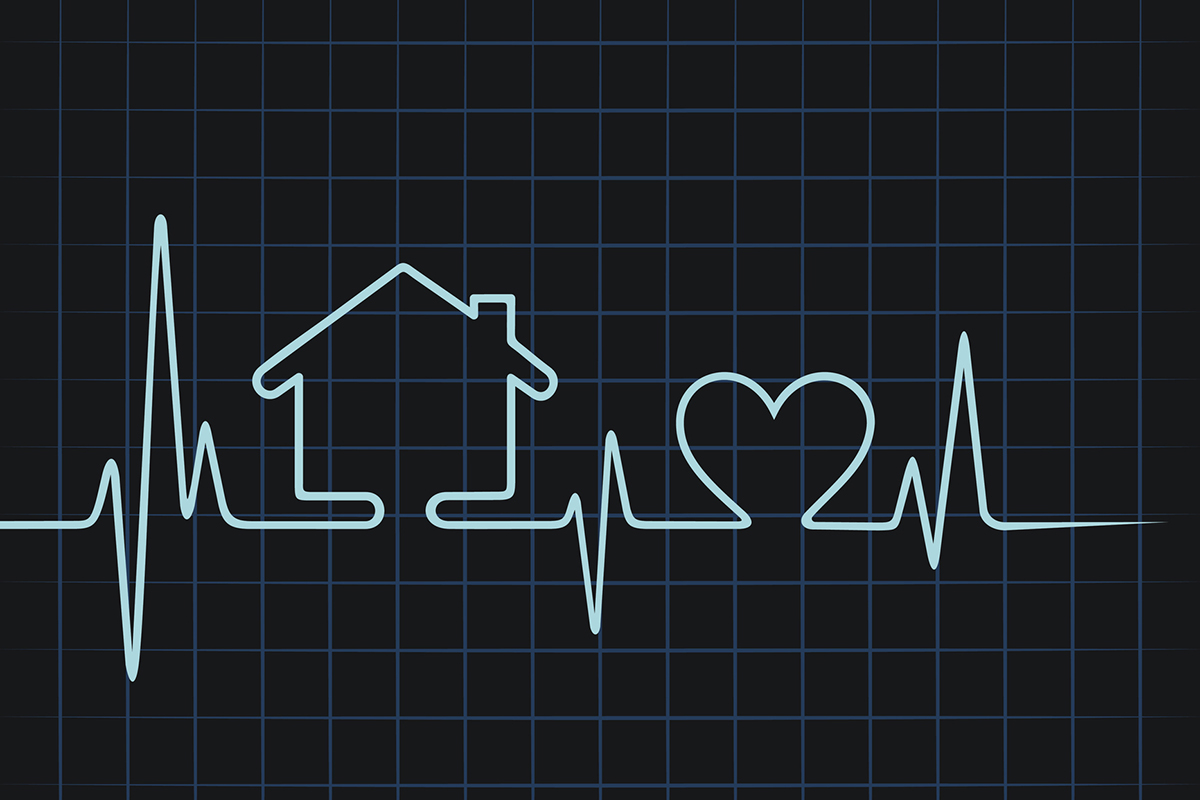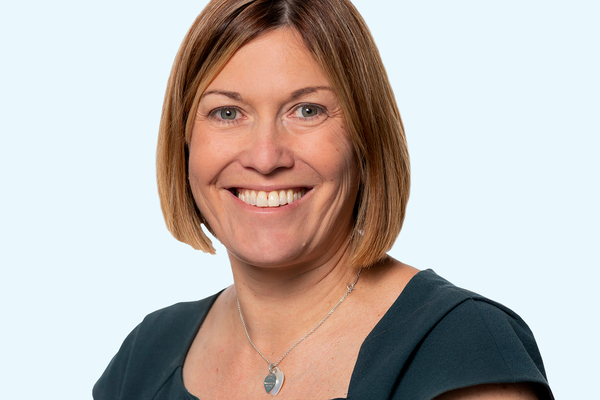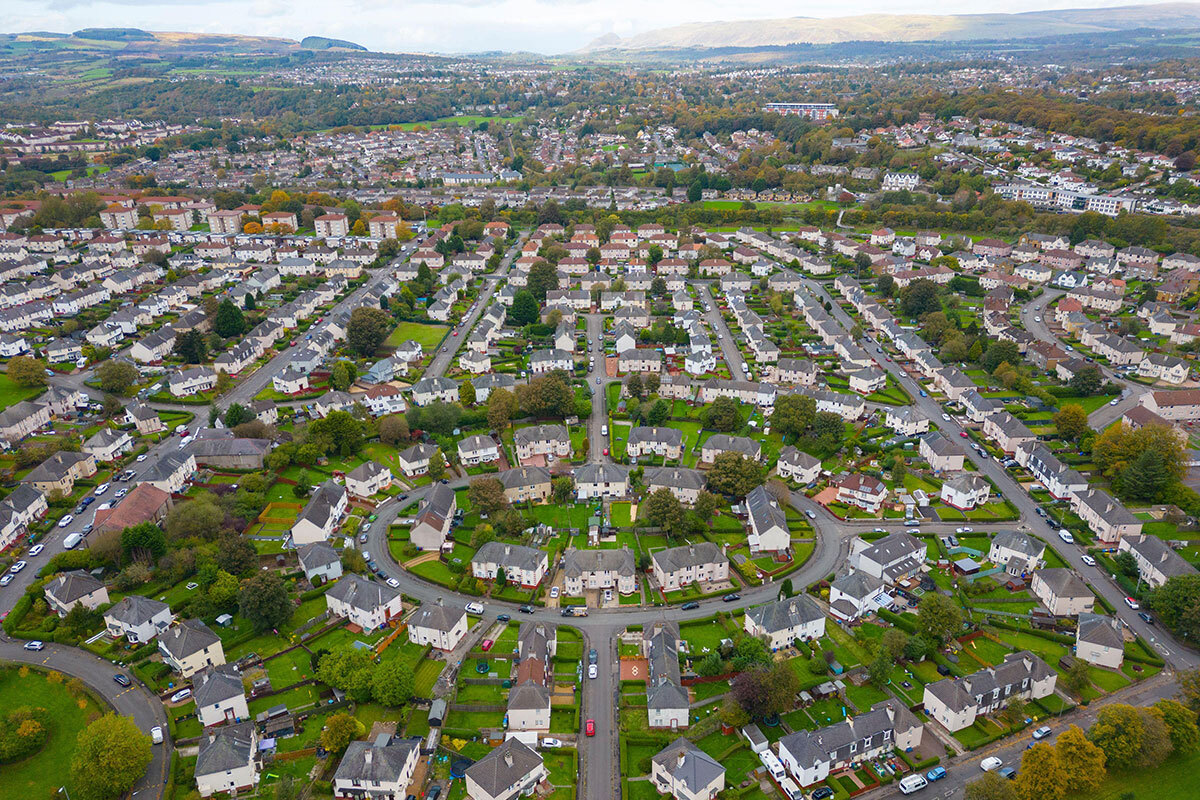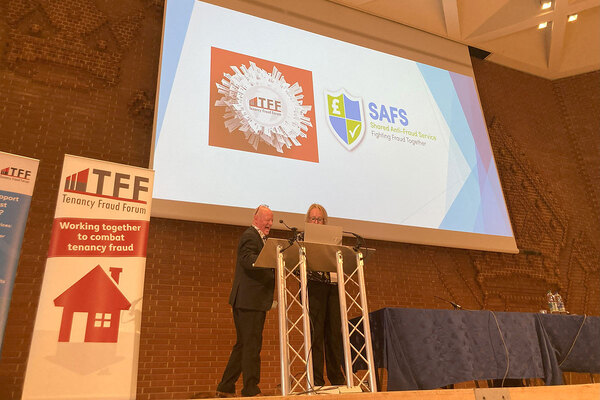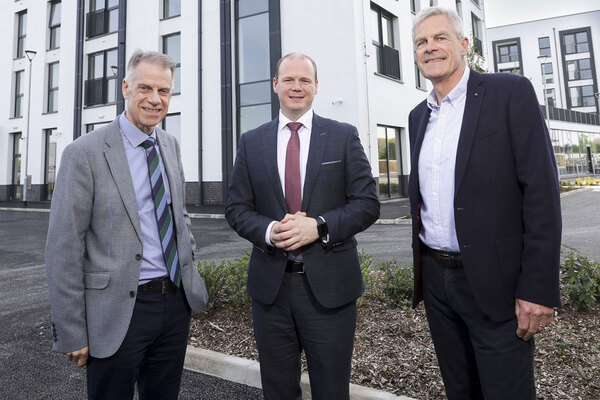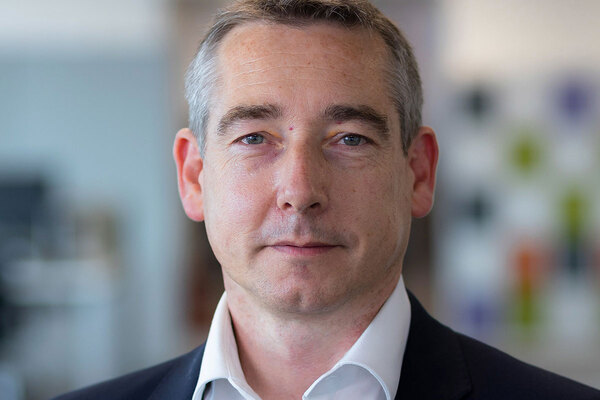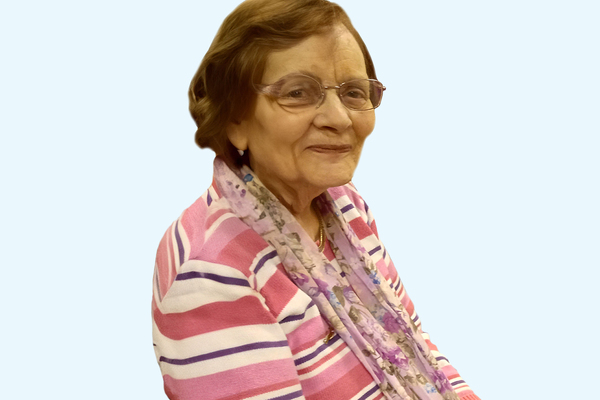
Aileen Evans is chief executive of Grand Union Housing Group
Why housing is a key player in health
Aileen Evans explains why Grand Union is investing in residents’ health
Over 8.5 million people live in social housing in England and almost half live in the most deprived 20% of neighbourhoods. Live expectancy for people in the poorest neighbourhoods is, on average, seven years shorter than for those in the richest.
The condition of your home has a direct impact on your health and well-being, and we as a sector must ensure that we’re doing all we can to make sure our customers live happy and healthy lives.
In 2021, Grand Union undertook its most comprehensive piece of customer research to date. This gave us incredible insight into our customers, helping us to understand their needs and wants better, but also where they are facing challenges.
It showed that of our nearly 29,000 customers in 13,000 homes, 72% have at least one condition that affects them on a daily basis, while 34% have three or more.
We also found that around a third of customers don’t feel able to maintain outdoor space or decorate.
These numbers show that we need to start thinking and acting differently.
The ‘computer says no’ process of old cannot be allowed to continue. Every customer will have different needs, so blanket approaches won’t be effective going forward. We need to empower our fantastic colleagues to use their skills, knowledge and judgement to see where we can be more flexible to better suit the customer’s needs.
This is the approach we’re taking at Grand Union.
“Home is the main setting for health throughout our lives. We therefore play a key role in the health agenda”
For example, we operate a number of domestic abuse refuges and are proud to be able to find new homes for people fleeing violence to live in safety and without fear. Often these customers have little to no money, but the homes they move into might not have carpets. I believe it is our duty to provide these on such occasions. Not only will it make the home more comfortable, but it will make it warmer and therefore healthier. From a business point of view, this makes sense, too, as we are then less likely to have to deal with issues such as damp and mould later on.
The Marmot Review into health inequalities (2010) states that home is the main setting for health throughout our lives. We therefore play a key role in the health agenda. Our homes and support services can, when aligned with strong partnership working, help to tackle health inequalities.
Last year, Grand Union, alongside Peabody and regional public health teams, launched an innovative partnership between health and housing to create a blueprint for a new way of working.
Our aim is to tackle health inequalities through partnership working to improve access to, and engagement with, public health services.
Partnership and place-based approaches such as these can achieve more effective engagement with those experiencing the worst health. They can also improve the reach of public health services, making them more available and accessible.
“We need to raise awareness of public health services that can benefit our customers, as we found this was often missing”
In its first year, this partnership has set up community hubs, trained 150 frontline staff and piloted research to better understand how people feel about their health and the barriers they face to improving it.
Since launch, 822 people have attended the hubs, resulting in 20 referrals to services such as stop smoking, social prescribing and mental health support. Feedback from those who have been supported has been overwhelmingly positive, and they have often been enabled to tackle multiple issues.
Alongside this work, Grand Union has employed a specialist health and housing co-ordinator who has been working in our communities. They have helped customers to stop smoking, with drug/alcohol services, emotional well-being, weight management and more.
I believe this is the direction we should be going as a sector. We need to raise awareness of public health services that can benefit our customers, as we found this was often missing. And we need to educate our colleagues so they can signpost customers to what’s available.
As organisations rooted in our communities, housing associations are perfectly placed to help reduce health inequalities, and the partnership approach supports healthy neighbourhoods and places.
Ultimately, good health starts at home. As providers of homes, it is our duty to ensure we’re doing all we can to reduce health inequalities, so the customers who live in our homes can thrive in a healthy environment.
Aileen Evans is speaking at Housing 2023. Hear from her at a session in the specialist housing stream called ‘Health and housing, working in partnership to tackle inequalities’ at 10.15am on 29 June. To find out more, click here
Sign up for the IH long read bulletin
Already have an account? Click here to manage your newsletters
